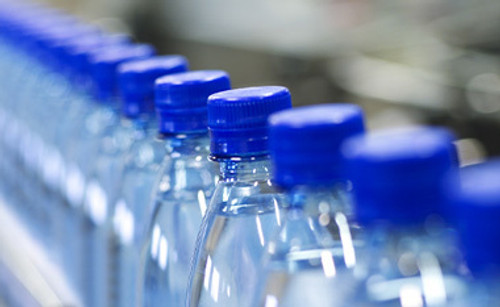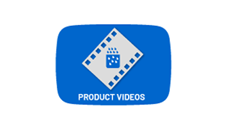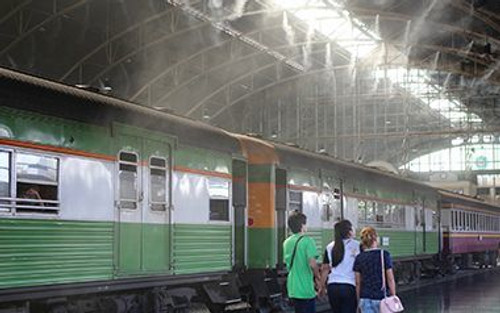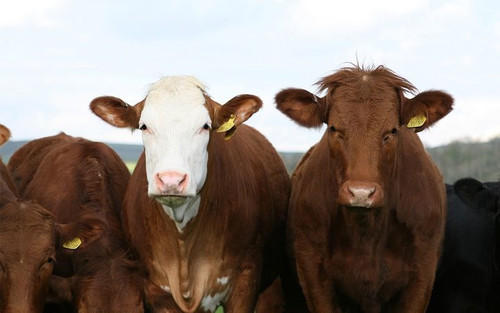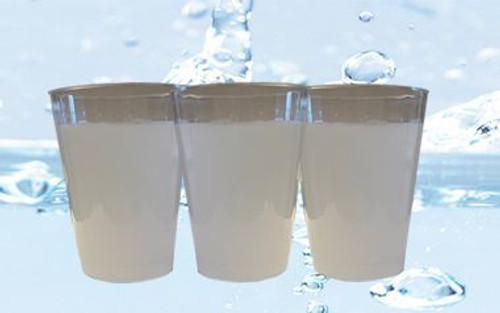The Source of the Bottled Water Purification Process
As aforementioned, bottling water begins at the water source. There are a variety of water sources throughout the land to find water, such as the ocean, groundwater, wells and springs, and municipal supplies. The next stage is to initiate a water filtration process through systems such as reverse osmosis, seawater desalination, ozonation, distillation, UV disinfection, electrodeionization for the purposes of removing unwanted contaminants from the feed water. Water treatment companies utilize one or more of these filtration processes depending on the quality of the feed water.
Which source of water chosen for beverage production also has an effect on the quality of water capable of being processed, as well as its profitability. More than 30% of bottled water supplies come from municipal sources, with the remainder resulting from other sources such as springs and wells. Wherever the water originates from, it will be liable to pass quality standards from water testing agencies. These agencies look at the type and frequency of organic and inorganic substances present within the source in order to determine the right implementation of the filtration process.
Equipment
Water that consists of a weird flavor or taste will not do well in the market. Organic substances such as metal ions in water can bring about these unwanted characteristics. The processes indicated above can purify these organics from the feed water, with specific treatments being more suitable for certain situations. For instance, membrane filtration are highly effective in eradicating metals, and other ions from water. Ozonation is perfect for the removal of odor from the water as well providing sanitation to avoid a recurrence of microbiological contamination.
Purified water and spring water are the two most popular kinds of bottled water on the market. While each type might not have much contrast in terms of taste, there is a great difference in the filtration process. Purified water requires extensive water treatment and regulation, more so than any other type of water. However, it provides the best quality and consistent water to the public. For this reason, it is the most in-demand type of bottled water from consumers. The most preferred processes used for the purification process are reverse osmosis, deionization, and distillation. Reverse osmosis is the most favored water purification system by bottlers due to its energy efficiency, lower cost and greater performance. Reverse osmosis systems remove up to 99% of organic substances and ions from the water, including nearly all bacteria and viruses as well.
When it comes to spring water, the water source must be a genuine spring. It is important to ensure the spring can handle the water production for the bottling process in order for it to be cost-efficient. Most spring water purification processes consists of treatment systems that operates in under 0.2-micron filtration. Once the filtration process is over, spring water is then generally purified with ozone to decontaminate and maintain the water in the bottle. By preserving the water characteristics, ozone displays its effectiveness with the removal of bacteria and organic substances and gradually and turns back to oxygen.
Hopefully this information will provide you with the resources to understand the differences between seemingly similar-looking bottling water. You will now be aware of where the water originates from, how it was monitored, and how it was treated.
Do you prefer bottled water or tap water?
Bottled water and tap water share similar values in regards to thoe safety they provide to the public. For this reason, the option of bottled or tap water is mostly an issue of personal preference. The Environmental Protection Agency (EPA) and the Food and Drug Administration (FDA) regulates tap water and bottled water respectively. Ultimately, each organization uses similar standards for guaranteeing safe drinking water.
One negative aspect of bottled water is it’s propensity to break down when exposed to high intensity UV energy. This prevalence occurs due to plastic containing organic substances and bonds that are vulnerable to dissolving when unprotected from UV energy. This downside makes it ill-advised to keep bottles directly under sunlight since the UV rays from the sun can cause breakage within the plastic, which will release chemicals into the water.
[custom-specifications]
There are certain characteristics beverages require, such as sufficient mineral content, taste, pH balancing to create great quality drinking products with acceptable flavor. The water purification systems manufactured at Pure Aqua are tailored to generate these features that are required for these beverages.
Ultimately, the main component of all beverages is water, and the quality of water is deemed as the essential factor in the quality of the beverages that are produced. First-rate water quality is vital to accomplishing a product with good flavor. While the accessibility of beverage products is convenient and uncomplicated, the process of manufacturing these beverages from water sources and safely into bottles is very complex.
[/custom-specifications]
For more information please view/download the industry brochure
[custom-features]
Recommended systems would be our:
- Commercial Reverse Osmosis System RO-200
- Commercial Brackish Reverse Osmosis System RO-300
- Industrial Reverse Osmosis RO System RO-400
- Industrial Brackish Water Reverse Osmosis System RO-500
[/custom-features]
[custom-usage]
Water Treatment For Bottled Water Production: The Advantages
- Fresh and potable tasting products
- Water quality is ensured after thorough testing
- Consistency of flavor and taste
[/custom-usage]
-
Always in stock!
Teriffic information regarding bottled water treatment
- Related Project1:
- https://pureaqua.com/ultrafiltration-system-for-bottling-plant-150-gpm-ghana/
- Related Project2:
- https://pureaqua.com/industrial-reverse-osmosis-machine-for-water-bottling-87000-gpd-algeria/
- Related Project3:
- https://pureaqua.com/activated-carbon-filtration-equipment-6-x-63-gpm-saudi-arabia/
- Related Project4:
- https://pureaqua.com/dual-bed-deionized-water-system-140-gpm-for-boiler-water-treatment-papua-new-guinea/
 ENGLISH
ENGLISH
 ESPAÑOL
ESPAÑOL ???????
??????? PORTUGUÉS
PORTUGUÉS FRANÇAIS
FRANÇAIS

